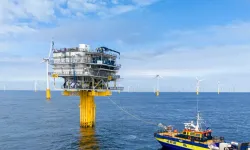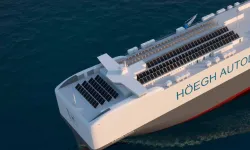China adheres to a "three noes" approach concerning the US in the region: no cooperation, no support, and no confrontation.
The recent drone and missile attacks on Red Sea shipping lanes by Iran-backed Houthis, in response to Israel's conflict with Hamas, have not directly threatened Chinese ships. However, these attacks impact China's economic interests, leading to the suspension of all shipping to Israel by COSCO, China's largest shipping conglomerate.
While the attacks may not target Chinese or Russian vessels, their impact on shipping disrupts vital trade routes, increasing costs and potentially fueling inflation in China. Persistent disruptions could hamper China's economic recovery and hinder efforts to strengthen external trade.
Despite the potential threat to China's economic interests, the country does not currently view the Houthi threat as immediate or acute. China's ability to diplomatically influence the Houthis is limited, and it is unlikely to join the US-led coalition against them. Chinese experts find some satisfaction in watching the US navigate its strategic relationships in the Middle East.
China is not actively exploiting the Middle East crisis to distract the US but sees an opportunity to consolidate ties with other Middle Eastern countries. China's reluctance to join the coalition against the Houthis is driven by its delicate balancing act between Israel and the Arab world and Sunni and Shia Muslims.
One possible response for China is to deploy naval escorts for cargo ships in the Red Sea, as it has done in the Gulf of Aden. However, such actions in the Red Sea lack a UN mandate, though China has recently begun pursuing them.
In light of the Middle East crisis, China finds a politically convenient response by blaming the turmoil on the failure of the US and Israel to achieve a two-state solution with the Palestinians. While a two-state solution is unlikely, China's focus seems to be on undermining US credibility rather than achieving a practical resolution in the region.






